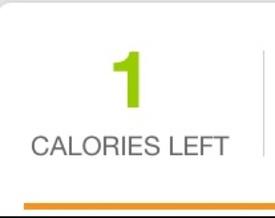Is there a better measuring stick than BMI?

Mdlea
Posts: 25 Member
Body Mass Index (BMI) is the measuring stick that the news always seems to use when they say how many Americans are obese. Your BMI is a function of your height and weight. The basic formula has no modification for gender, build, or level of musculature. You just fall into one of the following ranges:
Below 18.5 Underweight
18.5—24.9 Normal
25.0—29.9 Overweight
30.0 and Above Obese
At 6'-3" and 235 pounds, I am just barely under being technically obese. This drives me nuts. Even in my best condition a few years ago (riding my bike 40 miles a day and competing in triathlons and bike races), I weighed 228-ish and that is still almost technically obese. I probably was holding on to maybe 10 extra pounds, but I was not significantly overweight. I am broad-shouldered and muscular, but I am measured against the same stick as the narrow shouldered, non-muscular guy.
Am I just whining, or is there another meaningful measure?
Below 18.5 Underweight
18.5—24.9 Normal
25.0—29.9 Overweight
30.0 and Above Obese
At 6'-3" and 235 pounds, I am just barely under being technically obese. This drives me nuts. Even in my best condition a few years ago (riding my bike 40 miles a day and competing in triathlons and bike races), I weighed 228-ish and that is still almost technically obese. I probably was holding on to maybe 10 extra pounds, but I was not significantly overweight. I am broad-shouldered and muscular, but I am measured against the same stick as the narrow shouldered, non-muscular guy.
Am I just whining, or is there another meaningful measure?
0
Replies
-
Anything is better than BMI.0
-
http://www.fat2fitradio.com/tools/
Try this. I am not in healthy BMI range. Got 6 lbs to get there so I don't like it. I have been tracking my measurements and have went from 35% body fat to 29.9. Wohoo!0 -
BMI seems to be prevalent not because it's the most effective measure, but because it's the simplest to quantify.
I prefer to go off of Body Fat % (I'm in the opposite situation you're in - I was within the healthy BMI range but was carrying a noticeable gut that I wanted to get rid of). It's a bit more of a pain to keep track of, as virtually every measurement technique for it caries significant inaccuracy (and some of the methods cost money to have done) but it does give you a better idea how your body composition is looking.0 -
Yes, Body Fat Percentage is better but harder to get a good estimate of. There are normal weight people with too high bodyfat %age and most normal Americans bodyfat %age is really not in the healthy range. There is internal abdominal fat that is really unhealthy. So the idea is not just to lose weight but lose fat and get more exercise.0
-
Bodyfat percentage is a signifcantly better measure of how much fat there is on your body (go figure :ohwell: ).
But for BMI, you just need a scale and a doorpost to measure it - no measurements or calipers or impedance doohickeys or immersion tanks. People like easily measured indices almost as much as they like sweeping generalizations. :laugh:
The thing that is currently ticking me off about BMI is that the upper limit of the "normal" range was 27.8 until 1998, at least in the US. In '98, the US gov't changed it to 25 to match WHO standards (darned skinny rest of the world - hmpf! ). So in 1997, I'd have been perfectly normal at 188 lb; but by 1999 I'd have been 19 lb overweight by mere legal fiat - without my having gained an once. You'd think I could get grandfathered in or something. 0
). So in 1997, I'd have been perfectly normal at 188 lb; but by 1999 I'd have been 19 lb overweight by mere legal fiat - without my having gained an once. You'd think I could get grandfathered in or something. 0 -
http://www.fat2fitradio.com/tools/
Try this. I am not in healthy BMI range. Got 6 lbs to get there so I don't like it. I have been tracking my measurements and have went from 35% body fat to 29.9. Wohoo!
That site is pretty helpful. Based on the tool at the site, my body fat is 22.3%. As a 40 year old male, I need to be 19% or less to be in the healthy range. To do that, I need to lose another 9 pounds or so. There we go.
Thanks!0 -
I like the online body fat calculators, they are great for estimating progress over time, however keep in mind that they are an estimate, not an exact measurement. To get an actual measurement there are nifty things like BodPod tests and Dexa scans that are supposed to be really really accurate. Some people also swear by handheld body fat monitors and caliper measurements but IDK how accurate they are.0
-
I hate the BMI. I cannot physically fit into their healthy weight range for my height. At my thinnest I figured I could lose *maybe* 20 more pounds and I was still obese... it expected at least 40.0
-
For the average person, BMI is not a bad measuring stick. The exceptions are people with lots of muscle tissue and low body fat (bodybuilders are the classic example). I think we have a distorted view of what is healthy in our society and most of us don't realize that we are, in fact, that overweight.
I didn't believe it either. I was a good ways into the "obese" category when I started and I didn't look it really. Doesn't change the fact that I was obese.
As much as it sucks, it might be a good wakeup call to realize that you are borderline obese. That doesn't mean you can't do athletic things, but that you're carrying too much weight on you.
FWIW, I think the limits on the normal/healthy and overweight line is too low for some people, but not the obese/overweight line.
You should also have your body fat measurements done via BodPod or Dexa scan. They are the best way to know your body composition.0 -
http://www.fat2fitradio.com/tools/
Try this. I am not in healthy BMI range. Got 6 lbs to get there so I don't like it. I have been tracking my measurements and have went from 35% body fat to 29.9. Wohoo!
That site is pretty helpful. Based on the tool at the site, my body fat is 22.3%. As a 40 year old male, I need to be 19% or less to be in the healthy range. To do that, I need to lose another 9 pounds or so. There we go.
Thanks!
Even better than the basic body fat calculator on that site is the Covert Bailey body fat calculator on the same page. The basic calculator uses hips, waist, wrist, and forearm measurements. The Covert Bailey calculator adds in thigh and calf measurements. This brings me down to 19.4%. That way, I'm only 2 pounds away from the healthy zone. I obviously like this one better because it means I'm closer to where the healthy zone is. In actuality, I'd still like to lose 10 pounds or so.0 -
Most Americans are very much obese. We are starting to be a country that thinks an obese body is "healthy" and people that are healthy are just skinny bithches that need to eat. The only real situation where BMI doesn't work is with body builders. I'm not talking about some guy that does p90x, I'm talking real body building. If you're just a normal person that exercises, BMI will not be off for you. Nothing is 100%, but for the average person, I think BMI is pretty right on. I would challenge you if you think BMI is incorrect, to go get a body fat test and see where you are and what it says. 90% of you that think your "healthy" might learn differently. That's not a negative thing at all. It's always good to know where you have to improve. The best way to drop fat is to not eat any. Easier said than done though.0
-
BMI is not the most representative indicator for your body composition. Anybody with low body fat percentage and plenty of muscles will score as unhealthily obese, when a light weight person could score perfectly normal whilst having an unhealthily high body fat content. What really worries me in that context is the prevalence of BMI in assessing people's health within the NHS in the UK. School nurses weight and measure children, work out their BMI and flag problems. Thus the parents of perfectly healthy, physically active (some athletic) and well proportioned children are receiving letters about their children being over-weight. Well, on average, the lake was 1 metre deep but the cow still drowned. Using BMI and applying national averages is not always the way to go. So, what instead...
The percentage of body fat - especially around the mid-section - has been linked to a number of disieases that tend to occur later in life, such as heart disease, diabetes, etc. Therefore, it would make most sense to measure the percentage of body fat as an indicator of how your health is improving, rather than what the scales say in isolation or in combination with your height (which is BMI).
There are a number of ways to measure body fat, from the scientific (e.g. if you fancy a dunk at the local uni lab and pay a fortune for the privilege), via calipers (which need some experience and ideally somebody else to measure for you as you need several measurements) to body fat monitors (of the scales variety or hand-grips you come across in gyms, neither of which are very accurate - a friend of mine scored 42% fat at the gym and at her small size she'd have to be almost mush; her real percentage was about 37% - still high but more realistic). A really easy way is to use the US Navy method for measuring body fat (if you google you'll get plenty of hits and formulae). All you need is a good old-fashioned tape measure, enter your details and get your results. For its ease of use, I use this website. http://www.scientificpsychic.com/fitness/diet.html I have compared the calculated results to the ones I got from calipers. Affter 4 matching results (over a 4 week period), I ditched the calipers and am now using the website only. For my purposes of transforming from "fatso" to lean and healthy person that's more than adequate.
I use a spreadsheet in which I enter my results for lean mass, body fat and its percentage, total weight and my 3 measurements (waist, hips and neck - men only need waist and neck). Through changed eating habits (mainly more protein and 5 smaller but fully balanced meals instead of 3 big squares) and weight training as well as some cardio, I have lost about 6 kg since 9 January. However, I have gained 2.5 kg in lean mass and lost about 8.5 kg in body fat, not something BMI would have picked up on. Whilst I still have a long way to go, the change in body composition vs merely tracking weight loss has made a big difference in my clothes and I am entirely focused on losing fat and trying to keep my lean mass in place at all cost, hence tracking weekly to check I'm still on the right course.
Quite an essay response to your short question but I hope it explains it in enough detail to help you make the right choice for your health and gives you some practical advice to get you going.
If you need another nudge to persuade you - imagine going for a seriously heavy cardio workout, lose loads of fluids and hop on the scales. I'm sure your BMI improvement will applaud - that is until you replenish your fluids and the weight is back on. You can't trick your body fat percentage quite so easily.
And now I'll climb off my soapbox and go for a nice walk in spring sunshine with the kids and the dog. 0
0 -
Waist to hip ratio. Waist size vs half your height in inches.0
-
If you can get your body fat percentage measured, that is MUCH better to go by. Like you, even at my healthiest I was considered overweight according to my BMI but I was perfect according to my body fat percentage.0
-
I work in Nutrition. When I was in school in the early 2000's, we didn't even study it, as our professors said the practice of using BMI was completely outdated.
Perfect example. My BMI when I was 16, a size zero and had an eating disorder (you could see every bone in my body) was "morbidly obese". You can probably imagine where my poor body image came from. Ignore BMI.0 -
Bodyfat percentage. BMI is incredibly outdated and is really only useful to give you a ballpark figure.0
-
http://www.fat2fitradio.com/tools/
Try this. I am not in healthy BMI range. Got 6 lbs to get there so I don't like it. I have been tracking my measurements and have went from 35% body fat to 29.9. Wohoo!
That site is pretty helpful. Based on the tool at the site, my body fat is 22.3%. As a 40 year old male, I need to be 19% or less to be in the healthy range. To do that, I need to lose another 9 pounds or so. There we go.
Thanks!
The best part is that that site will also tell you how much to eat for your activity level to lose those 9 lbs so good luck! Now that you know your body fat (Did you use the military calculator? It's the most accurate one) go here http://www.fat2fitradio.com/tools/bmr/ and find your BMR and how many calories to eat to lose what you want to lose.0 -
I also hate BMI. It is a sad day when kids age 4 are getting letters from school/Doctor's to say they are overweight/obese according to the BMI.
http://www.dailymail.co.uk/news/article-2123768/Shes-active-girl-weighing-2st-13lb-But-health-police-Sophie-obese-danger-zone.html0 -
For the average person, BMI is not a bad measuring stick. The exceptions are people with lots of muscle tissue and low body fat (bodybuilders are the classic example). I think we have a distorted view of what is healthy in our society and most of us don't realize that we are, in fact, that overweight.
^This. BMI is a blunt tool but it should give you a GENERAL idea.
Always love it when people are like "BMI I SAYS I AM OVERWEIGHT BUT I DON'T WANT TO BELEIVE IT BECAUSE_______." Usually it's "BECAUSE I would look too skinny at the healthy weight." Lol.
I thought most of us were beyond the age of thinking that beleiving in things made them real....:laugh:0 -
BMI is best used as a population statistic and has its population estimate based on the current lifestyle that the "average" person lives within, (i.e. sedentary job, basic 60 minutes workout weekly), its okay for people of expected weight but rubbish if you are losing weight or are a health fanatic.0
-
I personally like to use body fat calculator... Women should have at the least 10% body fat, according to what i've read... http://www.bmi-calculator.net/body-fat-calculator/ there is a chart that explains where you are at... and you can calculate what you actual goal weight should be... I found out mine was too low based on BMI...0
-
My BMI range says that I'd have to weight 140 lbs to be at the low end. I'm damn near 6'! 140 lbs? W/E!!0
-
Totally agree with all.
Plenty of bodyfat calculators on the web, just take a few measurements. It isn't perfect, either, but you can still gauge progress over time.0 -
Hey there I am a US Navy command fitness leader and we do use an altered form of bmi to measure people. However I have been fighting this for years. When bmi was developed it was meant to be applied to a large group of people. So if 8000 people averaged 5'8" and weighed 175lbs then they would find the bmi for that group. This works out to be a group representation because some may have a lot of muscle while others have little to none so it balances. However it was never meant to be applied to a single person so the math doesn't add up. As said previously body fat percentage is the most accurate. I fall in at a 28 on bmi (dangerously heavy)but I am only at 11% percent body fat(very athletic). A body fat measurement is not hard to get. Many gyms have the service as well as your doctors office next time you go in for a physical (which you should do before starting a new exercise routine and diet). Also chck with your work. Many companies have wonderful programs for fitness because it saves them money on healthcare. If you have any questions feel free to ask.0
-
Well, I don't think it takes BMI stats to figure out how overweight/obese Americans are. Just walk around any mall and take a look around. And, I was one of those overweight people! It's startling to me, the difference between how the average person "looked" say when I was in high school versus now.
But, I don't think BMI is a bad thing. Yes, as an individual it can take into account your age and gender in addition to your weight and height. I found one calculator on one of the more popular medical websites (can't find it now) which also allowed you to input other factors if you knew them, such as frame size (by elbow measurement) and body fat percentage.
I think most "generic" BMI calculators have a disclaimer that they don't work for truly athletically fit people. But, most Americans certainly don't fall into that category.0 -
For the average person, BMI is not a bad measuring stick. The exceptions are people with lots of muscle tissue and low body fat (bodybuilders are the classic example). I think we have a distorted view of what is healthy in our society and most of us don't realize that we are, in fact, that overweight.
I didn't believe it either. I was a good ways into the "obese" category when I started and I didn't look it really. Doesn't change the fact that I was obese.
As much as it sucks, it might be a good wakeup call to realize that you are borderline obese. That doesn't mean you can't do athletic things, but that you're carrying too much weight on you.
FWIW, I think the limits on the normal/healthy and overweight line is too low for some people, but not the obese/overweight line.
You should also have your body fat measurements done via BodPod or Dexa scan. They are the best way to know your body composition.
Sorry Elizabeth, I have to disagree with you on this one. The BMI scale was never intended to measure individuals, but was designed as a method for assessing populations. To apply it as it is currently used by the NHS/Insurance companies etc is quite simply a misapplication. Many people, not just body-builders, who are of greater-than-average physical structure quite simply do not fit within the parameters as they currently stand.
The WHO has reduced the guidelines several times since the current version was first used, as they expanded their reach to typically-smaller-framed non-Caucasian societies and needed to factor in their populations (critical word that - the WHO's primary use for BMI is the correct one - measuring populations, rather than individuals) and their associated predispositions. There are many people (particularly of Nordic, North/Eastern European and Celtic descent) whose frames and genetic predisposition to muscularity place them outside the current guidelines for 'health', yet are entirely healthy.
BMI's popular use has more to do with being cheap, requiring little more than a scale, a tape measure and a calculator, and relatively simple to assess than with being any real guide to healthy body composition. The OP may well be 'borderline obese' by the BMI standard, but very healthy using an appropriate method to measure an individual's physical health, rather than a misapplied, generic catch-all.0 -
Sure - but generally they are a pain to use. BMI is actually pretty good for most people and I think you can adapt a bit for gender and frame (use your wrist measurement to determine your frame small/med/big)
Other easy stuff is waist hip ratio-Im not sure how that applies to men...Or the humble tape measure. Waist circumference can be related to incidence of heart disease - but that just gives you a number you shouldn't be bigger than.
But most of us havent got sophisticated body fat measuring equipment lying about at home so BMI it is0 -
BMI is generally used for population based standards. For individuals your doctor will likely use BMI in combination with either waist to height or waist to hip ratio. This gives a much better picture of heatlhy weight. I am slightly in the overweight BMI category, but with either waist to height or waist to hip added I drop into the healthy weight category.0
-
BMI gets a much worse rap than it deserves.
Granted it doesn't work for everyone as mentioned above, but for most people it is an accurate representation. The people it doesn't work on would tend to be the sort of people who know about their health and don't need to worry about the BMI reading.
The argument against BMI gets used far too readily to dismiss it where people who are overweight decide that they clearly have lots of muscle under there and that is why it is out. The truth is that if you are overweight on the BMI scale then you are actually overweight.0 -
Most Americans are very much obese. We are starting to be a country that thinks an obese body is "healthy" and people that are healthy are just skinny bithches that need to eat. The only real situation where BMI doesn't work is with body builders. I'm not talking about some guy that does p90x, I'm talking real body building. If you're just a normal person that exercises, BMI will not be off for you. Nothing is 100%, but for the average person, I think BMI is pretty right on. I would challenge you if you think BMI is incorrect, to go get a body fat test and see where you are and what it says. 90% of you that think your "healthy" might learn differently. That's not a negative thing at all. It's always good to know where you have to improve. The best way to drop fat is to not eat any. Easier said than done though.
While I think Body Fat is much better than BMI
You are spot on!!0
This discussion has been closed.
Categories
- All Categories
- 1.4M Health, Wellness and Goals
- 398.5K Introduce Yourself
- 44.7K Getting Started
- 261K Health and Weight Loss
- 176.4K Food and Nutrition
- 47.7K Recipes
- 233K Fitness and Exercise
- 462 Sleep, Mindfulness and Overall Wellness
- 6.5K Goal: Maintaining Weight
- 8.7K Goal: Gaining Weight and Body Building
- 153.5K Motivation and Support
- 8.4K Challenges
- 1.4K Debate Club
- 96.5K Chit-Chat
- 2.6K Fun and Games
- 4.8K MyFitnessPal Information
- 18 News and Announcements
- 21 MyFitnessPal Academy
- 1.5K Feature Suggestions and Ideas
- 3.2K MyFitnessPal Tech Support Questions






















